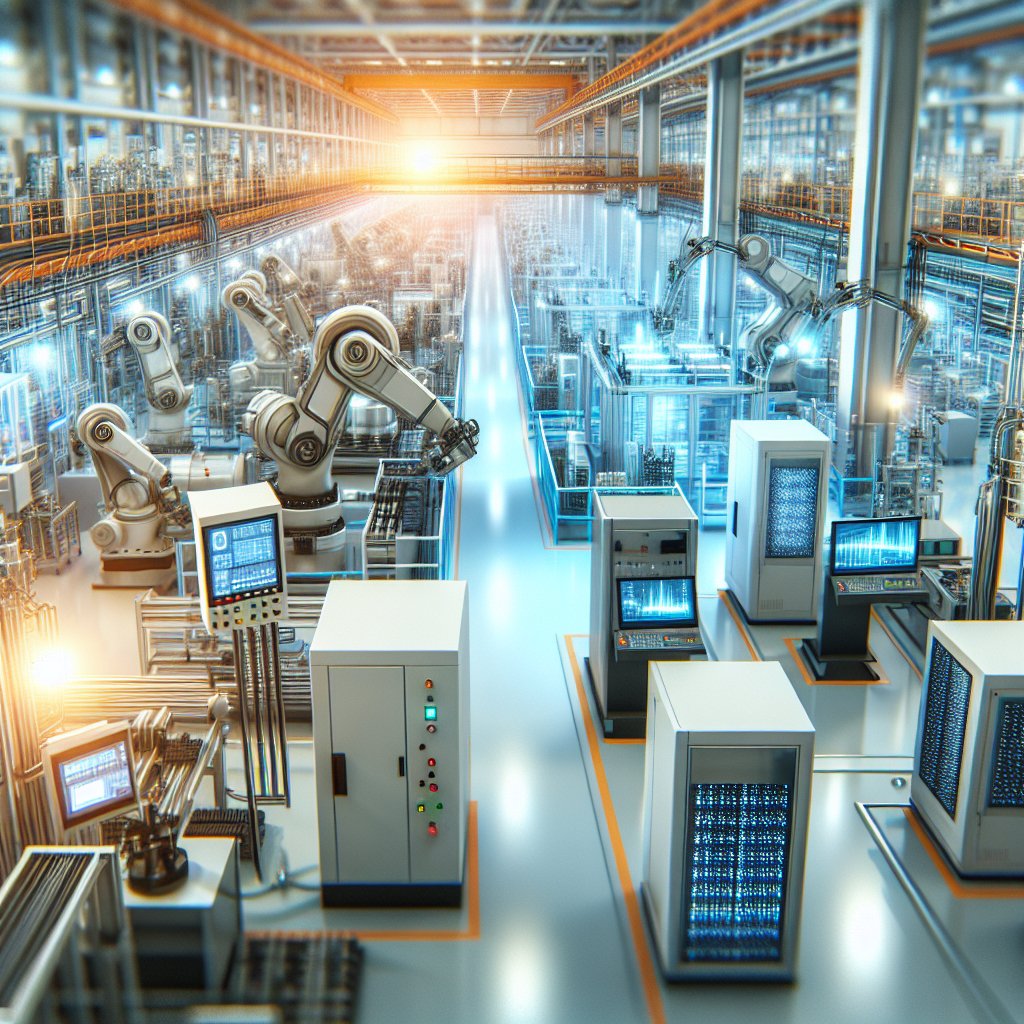
As the world continues to embrace the digital revolution, the future of smart manufacturing in the age of Industry 4.0 is becoming increasingly significant. This transformation is characterized by the integration of advanced technologies such as the Internet of Things (IoT), artificial intelligence (AI), and big data analytics into manufacturing processes. These innovations are not only enhancing efficiency and productivity but are also paving the way for more sustainable and flexible production systems. In this article, we will explore the key components of smart manufacturing and the potential challenges and opportunities that lie ahead.
The Core Components of Smart Manufacturing
Smart manufacturing is built on several foundational technologies that work together to create a more interconnected and intelligent production environment. These technologies include:
- Internet of Things (IoT): IoT devices and sensors are crucial for collecting real-time data from machines and production lines. This data is used to monitor equipment performance, track inventory levels, and optimize production schedules.
- Artificial Intelligence (AI): AI algorithms analyze the vast amounts of data generated by IoT devices to identify patterns and make predictions. This enables manufacturers to anticipate maintenance needs, reduce downtime, and improve product quality.
- Big Data Analytics: The ability to process and analyze large datasets is essential for making informed decisions in smart manufacturing. Big data analytics helps manufacturers understand market trends, customer preferences, and operational inefficiencies.
- Cloud Computing: Cloud-based platforms provide the necessary infrastructure for storing and processing data. They also facilitate collaboration and communication across different departments and locations.
- Cyber-Physical Systems (CPS): CPS integrate physical processes with digital technologies, allowing for real-time monitoring and control of manufacturing operations.
These components work in harmony to create a more agile and responsive manufacturing environment, capable of adapting to changing market demands and technological advancements.
Challenges and Opportunities in Smart Manufacturing
While the benefits of smart manufacturing are clear, there are also several challenges that need to be addressed to fully realize its potential. These challenges include:
- Data Security: With the increased connectivity of devices and systems, the risk of cyberattacks and data breaches is a significant concern. Manufacturers must invest in robust cybersecurity measures to protect sensitive information and maintain operational integrity.
- Workforce Skills: The shift towards smart manufacturing requires a workforce with new skills and expertise in areas such as data analysis, machine learning, and IoT technologies. Companies must invest in training and development programs to upskill their employees.
- Integration Complexity: Integrating new technologies into existing manufacturing systems can be complex and costly. Manufacturers need to carefully plan and execute their digital transformation strategies to minimize disruptions and maximize returns on investment.
- Regulatory Compliance: As manufacturing processes become more automated and data-driven, companies must ensure compliance with industry regulations and standards. This includes data privacy laws, environmental regulations, and safety standards.
Despite these challenges, the opportunities presented by smart manufacturing are immense. By leveraging advanced technologies, manufacturers can achieve greater efficiency, reduce waste, and enhance product quality. Additionally, smart manufacturing enables more personalized and customized production, allowing companies to better meet the needs of their customers.
In conclusion, the future of smart manufacturing in the age of Industry 4.0 is promising, with the potential to revolutionize the way products are designed, produced, and delivered. By embracing digital transformation and addressing the associated challenges, manufacturers can position themselves for success in an increasingly competitive and dynamic market.

